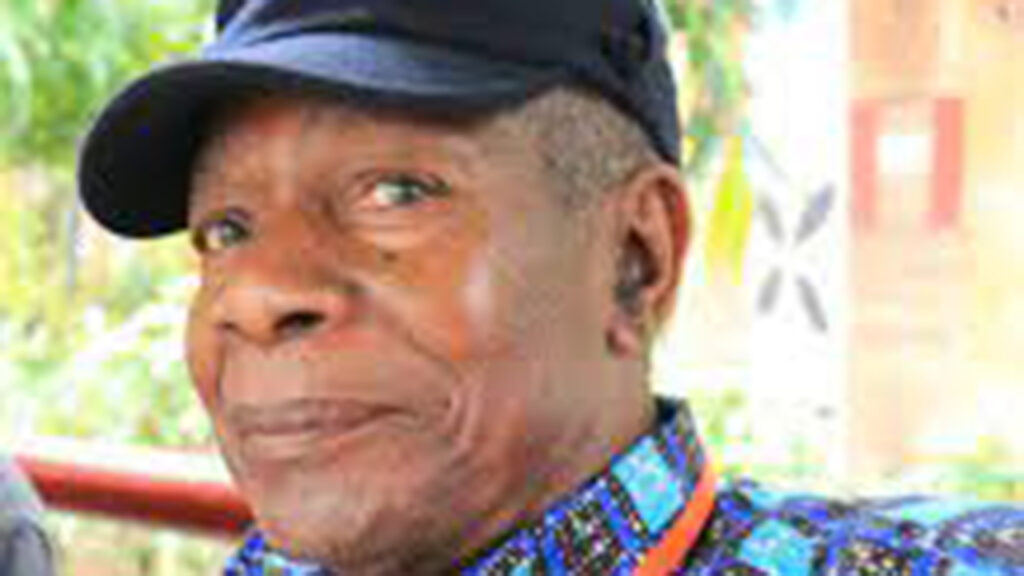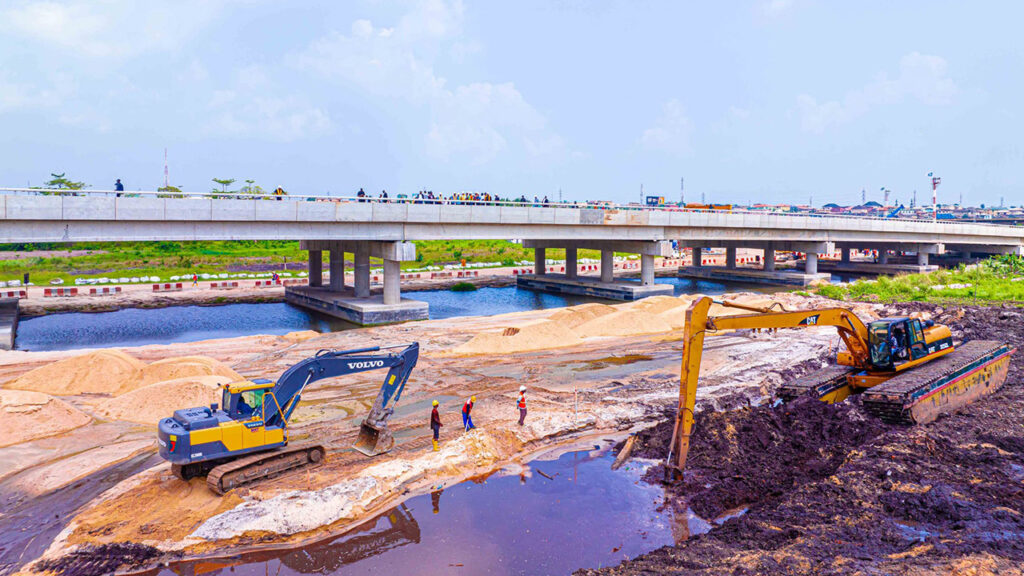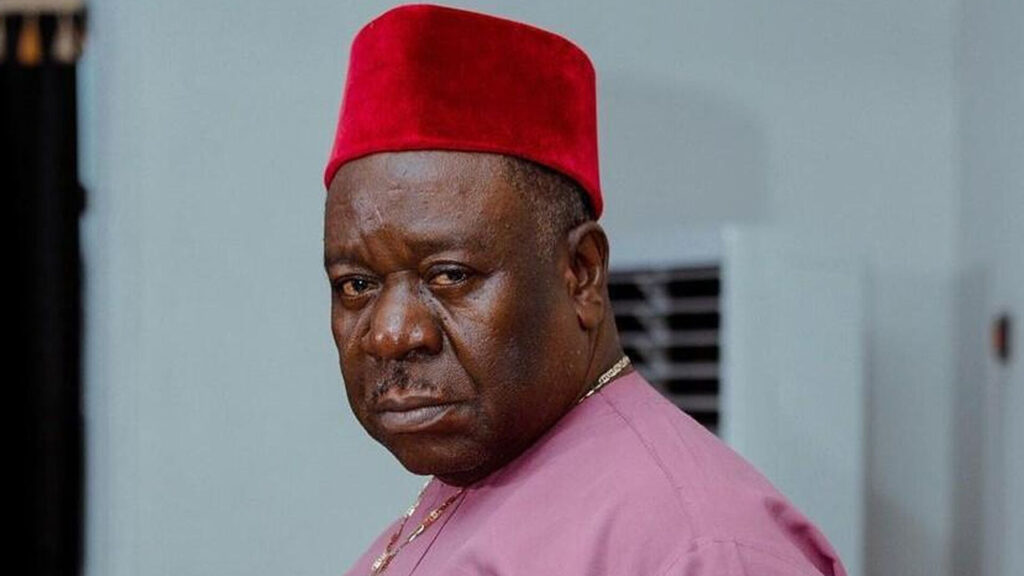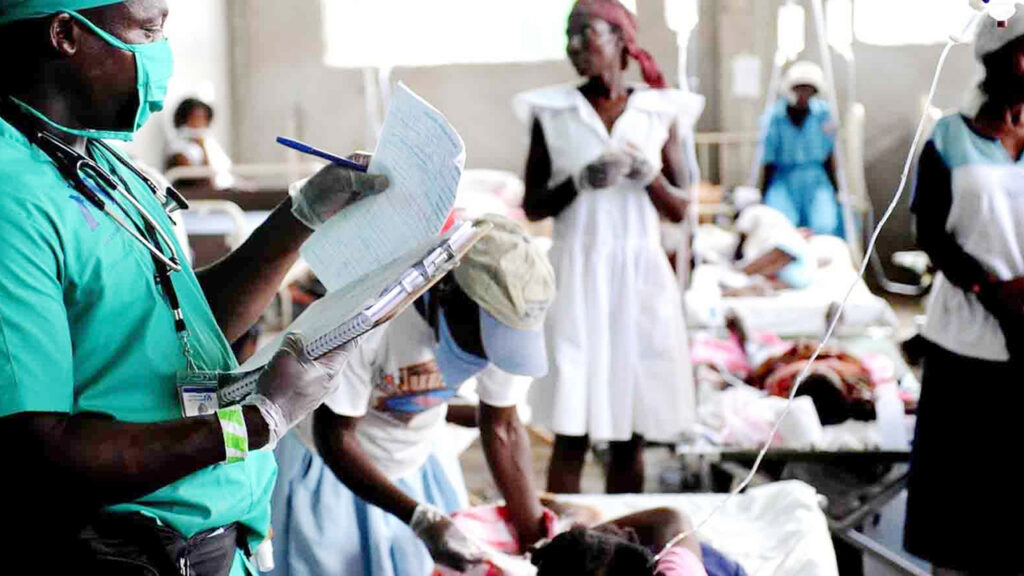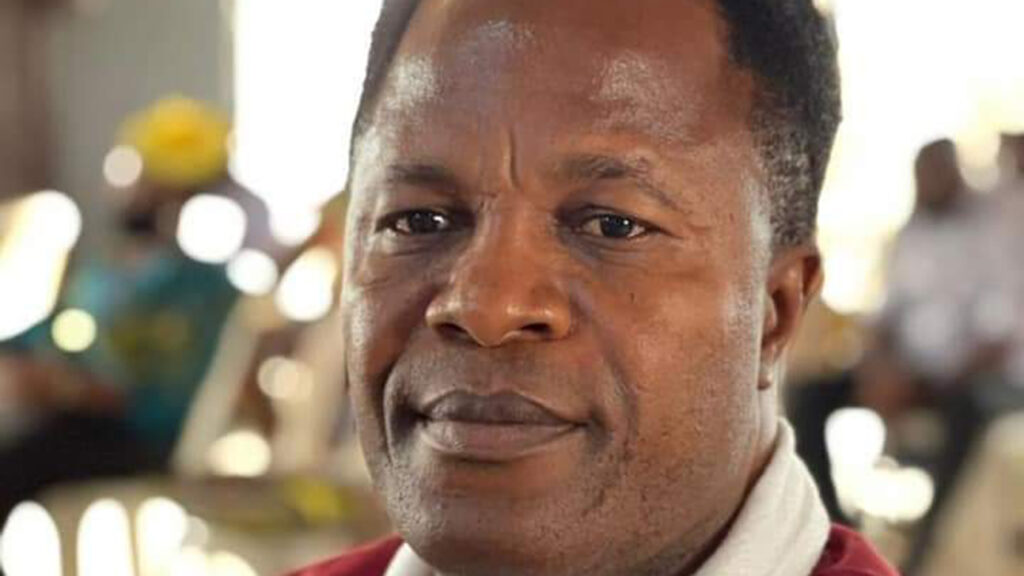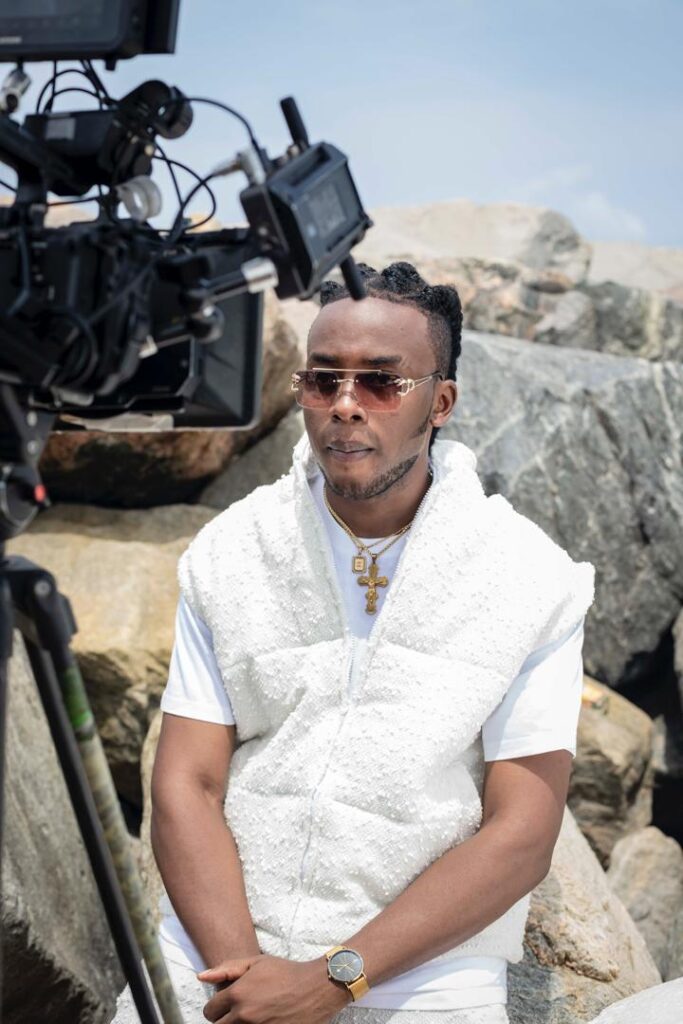
Prof. Olu Odeyemi is a retired professor of Microbiology at Obafemi Awolowo University (OAU), Ile-Ife. A former Head of the Department of Microbiology, Vice Dean of the Faculty of Science and Dean, Students Affairs at OAU, he also served as the pioneer Rector of Osun State College of Technology, Esa-Oke.
His immense contributions to the fields of Agriculture, Microbiology and Environmental Protection earned him many local and international awards some of which are the Most Valuable Thesis Award at Cornell University, Ithaca, New York, with a Patented PhD Thesis (1976), National Merit Award in Science and Technology (1990), Osun State Government Award for Excellence in Science and Technology (2005), OAU Great Achiever Award (2003) and Officer of the Federal Government of Nigeria OFR (1999).
A member of many professional bodies like the Biotechnology Society of Nigeria, Nigerian Society for Microbiology, Society for Occupational Safety and Environmental Health, and American Society of Microbiology, Odeyemi seized the opportunity of his 77th birthday, which he celebrated last Thursday, to speak on his life experiences and sundry national issues. The Guardian’s ONYEDIKA AGBEDO and LAOLU ADEYEMI anchored the interview
How do you feel at 77?
I feel very good. In a lot of ways I feel very fulfilled. I thank God for his blessings. When I compare myself with my colleagues, I realise that I have had very special blessings from God for which I’m very grateful to Him.
If you meet God on this occasion and He asks you to make a request, what would you ask for?
The most important thing I will ask God, which I have prayed about this morning, is healing. I need to be healed. Through the grace of God, I have been able to do many things but I still require more grace. I need better health than I have now to be able to become much more mobile and capable. So, that is the most important thing I will request from God.
You spoke about your many blessings from God. Can you name a few of them?
Number one is the quality of the children that God gave to me. I also thank God for the wife that He gave me, who is the mother of the wonderful children. I cannot count all my blessings and I remain grateful to God for all of them.
Even though longevity is a gift from God, were there special steps you took with regard to your lifestyle that were aimed at maintaining good health and attaining old age?
Well, all I know is that I try to be close to my Maker, because without God, human beings don’t even exist. So, I have nothing to say other than the grace of God.
In fact, today in our daily devotion, that was what we discussed. The Bible study we did this morning was about the grace of God, which is so important. The information we gathered from the Bible showed us that we have to show gratitude to God always for His manifold blessings because He decides whom He wants to bless. He is the one that can determine how old you can live and for how long you can live. So, by getting closer and closer to Him, we can have the opportunity to speak to Him in our prayers and request for good health and longevity of life.
Reflecting on your past, are there things you would do differently if given another chance?
Another chance of what?
You have held many important positions in the past. If you have the chance to hold those positions again, are there things you would do differently?
No! I will still go through life the way I have gone through it so far, though I had one little problem with that in that when I developed stroke, I was told that one of the causes was working too hard. I have believed in hard work since I was very young. In spite of the problem, I still believe in hard work but may be I would have been a little bit more careful to avoid an illness like stroke. But I love to work hard because without hard work, you can scarcely have any major achievement. So, if God gives me back good health, I will still work hard. Even in the service of God, I will still work hard to be useful to humanity. There are so many things to do for myself, my family, my children, my church, my institution, my community, my town, my country and the international community. I have been serving these people all my life and I would like to serve them more if God gives me better health than I have now.
You spoke about the virtue of hard work and its benefits. What are your thoughts about the get rich quick syndrome among the youth of today that is pushing them into many destructive vices?
That is the fundamental problem of Nigeria and it is also one of the reasons I work very hard because I want to serve as a good example to other people. For instance, when I served as a professor in Obafemi Awolowo University, Ile-Ife, I trained many students in the area of hard work and many of them are doing very well now such that if you go to any higher institution in Nigeria, you will find invariably one or two of my students there as a lecturer or a professor.
A very good example I will cite is the University of Ado-Ekiti. If you go to the Department of Microbiology there, there are about six professors, male and female, who are my former students. If you go to Ahmadu Bello University, Zaria, there is a professor of Biology who is also my former student.
I believe that we should be good examples to the youth, of course starting from our families. My children are very hard working and I’m thankful to God for that.
If this country can educate and train the youth in the way of hard work, the country will be better off than it is now. But now, some people believe that you can make money without really sweating much whereas it is not possible. You have to work very hard to make money. Of course, you must also be honest, disciplined and God fearing. All these attributes are very important to bringing up the youth of this country.
You talked about parents being good examples to their children. Are you of the opinion that parents, maybe inadvertently, aided and abetted the youth into the vices they engage in nowadays?
Obviously! A lot of parents are not really mindful of the kind of children they want to bring up. I know that before I got married, I had told my wife the kind of children I want to have and I kept strictly to that. I talked about educating children to the highest level and bringing them up to be disciplined, honest and hard working. I think to a large extent, I did exactly that through the grace of God. I trained them also to honour God always and to put Him first in whatever they do. So, parents should train their children in the way of God. Even the Bible says, “Train up a child in the way he should go and when he grows old, he will not depart from it.” If the Bible says that, why are we not doing that?
So, I appeal to all parents to do just that, especially the youth that are just planning to get married and have children. You have to determine the qualities you want to see in the children you want to have and even the quantity of children you want to have.
You recommend educating a child to the highest level possible but Nigerian youths seem to be losing faith in that route to success because many of them don’t get employed after graduation while some are grossly under-employed. What is your take?
That is a political problem. That is the problem of governance because when you train children, you also know that when they graduate, they have to have jobs. That is the essence of getting trained in schools. That is why governance is all-important. You don’t just leave children to roam the streets after graduation without jobs. You are creating a serious problem. In any case, you need them to develop your nation. That is why since 10 years ago we have been advocating vocational training for youths. The idea is to subject the youth to training in other areas of immediate importance after graduation.
If for instance the roads are bad and we need road engineers to maintain them, what stops us, as a nation, from training fresh Engineering graduates specially on how to mend roads and then deploy them to different roads of the country, local council by local council, so they can help us maintain our roads.
Similarly in the area of security, we can train students of Sociology, Psychology and other Social Sciences on security and maintenance of law and order and then deploy them to different parts of the country to help us secure the nation. All these things are so important that you need a government that is very well focused to think through them and take necessary steps.
In fact, I had taken steps in some of these areas before. I have written to different heads of state or presidents. For instance, the Federal Roads Maintenance Agency (FERMA) was created by the Obasanjo administration as a result of several letters I wrote to him when he was president on the need to maintain our roads and other facilities that the colonial masters left for us, which had all gone bad. As a result of that, he created FERMA, which covers just the roads but what I requested for was all the things that the colonialists left for us like the libraries, water works, buildings and many other facilities that were not being maintained. So, if we have maintenance agencies in all these areas, we will learn the act of maintaining and sustaining what we have; and also create employment for our graduates.
I was also responsible for the suggestion that led to the creation of the National Agency for Science and Engineering Infrastructure (NASENI). The headquarters of the agency is in Abuja but there is a branch of the agency near my house here and in some other places in the country.
Looking at the education sector, what would you say the country has been getting wrong lately that paved the way for the noticeable drop in standard?
Maybe what we are getting wrong is the selection of the headship of the higher institutions, for instance the polytechnics. We politicise the selection process too much, sometimes at the expense of competence.
Once the head is not right, the institution cannot be right; it cannot function well because decision making is so important in any institution such that the person you want to put there must have clarity of purpose. The person must also be competent.
It is also similar to the political process of selecting the president, governors, chairman of local councils and lawmakers. We should be very selective and careful in the selection of the people that we entrust with political power.
Do you think the curriculum in use in the country’s institutions is in sync with current realities?
The curriculum in every institution should be modified from time to time. We must review the curriculum in our universities, polytechnics and Colleges of Education very regularly and that is the function of the National Universities Commission (NUC) for the universities and the National Commission for Colleges of Education (NCCE) for Colleges of Education and polytechnics. They oversee the institutions in terms of quality and curriculum and also quality of staff recruitment.
Talking about the need for purposeful and focused leadership, Nigeria is preparing for another general election. How do you think the electorate can enthrone such a leadership through the forthcoming elections?
Well, if we want to do things the way things are done in other parts of the world like the U.S. for instance, the contending candidates are supposed to be subjected to debates so that Nigerians will be able to know the kind of human beings they are, the kind of backgrounds they have and the plans they have for the country. And Nigeria has lots of problems now that I even pity whoever is going to take over this country after the next election. The person has a lot of jobs already cut out for him. But if at least we take them through debates over and over, we would be able to extract some information from them as to the quality of leadership they can give to Nigeria. We need to do this seriously and urgently.
However, I’m also aware that a lot of debate is going on here and there but some of the candidates are not even attending the debates. It doesn’t seem that they realise the importance of the debates. I don’t know if the country itself is ready to more or less force everybody to go through these debates to give Nigerians an idea of the kind of leadership they would have after this election.
For instance, whoever wants to rule Nigeria now should tell us quite clearly how he is going to solve the problem of insecurity. He also has to tell us quite clearly how he is going to solve the problem of inadequate power supply. That’s number one! Whatever it would take to supply electricity to all parts of the country must be done first and foremost because there are so many other factors that are affiliated to that.
I remember some years back, after the yearly budget had been passed, some pressmen came to me asking me to comment on the budget. The only thing I said was that all the money the government wanted to spend that year should be devoted to solving the electricity problem. I stated that whoever that is able to solve the electricity supply problem of the country to a large extent would be regarded as the father of modern Nigeria. If it’s female, she should be regarded as the mother of modern Nigeria. Electricity supply is so critical and important that all efforts must be made to solve that problem.
So, if we subject the contestants for presidency to debate, we would be able to extract from them the plans they have for generating and distributing electricity to all parts of this country because that’s the beginning of development for Nigeria. If you have not done that, all the other things you are doing are just peripheral activities. Once you solve the problem of poor electricity supply, there are so many other problems that will be solved concurrently.
What message do you have for Nigerians ahead of the elections?
I still insist that more debates should be carried out so Nigerians can get to know very well who to vote for. The Federal Government can maybe through the Independent National Electoral Commission (INEC) threaten the candidates that whoever is not attending debates should not expect people to vote for him. Left to me, debates should be held, not once or twice in Abuja, but in all the states and local councils so that the grassroots will know the people they want to vote for. I know they are campaigning but campaigns are different from debates. It is through debates that people can tell the challenges they have and ask the candidates how they intend to solve the problems.
If Ajaokuta Steel Company has been there for so many years and nobody is saying anything, if a debate is carried out in Kogi State, people can ask the candidates directly what they intend to do about the project.
You ran for the post of governor during the 2007 governorship election in Osun State. How would you comment on politics of the state today?
It is very difficult for me to say anything because I don’t understand it. Honestly I don’t understand it. And that also goes to the politics of Nigeria itself to a large extent. The current status of politics in Osun State is that we have a governor who came into power only a few months ago. Before then there was another governor and many people do not even know who is their true governor because information has been flying left and right. People have been saying, “we will come back to power.” So, people do not know if the governor is there permanently now or not but we will always pray to God to give us a very good governor that will give us peace and progress in the state, and also solve the problems of insecurity, joblessness and poor power supply.
Fortunately, I’m not one of those that criticise for criticism’s sake. Before I went to the U.S., I knew all the serious problems of Nigeria. When I was a student in the U.S., my attention was focused on solving those problems so much so that when I came back, I devoted myself to that.
When I returned in 1976, as I was being taken from the airport to OAU, Ile-Ife, to resume work, I saw a lot of refuse on the roads in Ikeja. I just asked myself, ‘are people living here human beings or animals’. Before I left Nigeria, people were not that dirty. So, there and then, I promised myself that when I start work, I would find a solution to the problem.
So, when I resumed work at Ife, I started working on how to convert waste to wealth and I was converting waste to gas at that time, which is called biogas. In fact, there are many places where they still call me biogas. I built two biogas plants at the back of my house and we were using it for cooking. In fact, when you convert waste to gas, there is a leftover of another set of refuse, which we call post digestion sludge, which is converted to organic fertilizer. So today I have an organic fertilizer plant, where I produced organic fertilizer for this country. It was being sold in Kaduna, Benin and all over the country. The good thing about it is that before I left the U.S., American farmers had stopped using chemical fertilizer in agriculture because of its adverse effects on humans. They were using organic fertilizer instead. So that also made me intensify production of organic fertilizer in Nigeria.
There was a year that my organic fertilizer was introduced to all the secondary schools in Osun State, when Chief Bisi Akande was governor, to encourage farmers to plant crops organically. Inorganic chemicals have been found to cause cancer and many other diseases in the body.
So, it is of no use for Nigerians to go abroad and study without having in mind how to use their knowledge to solve Nigeria’s problems.
At 77, do you have any regrets?
I don’t have regrets; I’m only thankful God. There are so many people that didn’t get to 77. I’m just lucky to have the grace of God. I always emphasise that it’s the grace of God that has sustained me since I was born. That grace of God is still with me and my family. So, I say glory be to God every day.
Can you recall any of your happiest moments in life so far?
They are many. When I graduated from the University of Ibadan, I had the best result in my department and I had the departmental prize that year. It was through the result that I was lucky to be given admission to Cornell University in the U.S. to study for Master’s and PhD. It was a very happy moment.
When I had my PhD at Cornell University was also a happy moment. My thesis was selected by the U.S. government and patented. That was also a happy moment for me because there were many students from all over the world under the tutelage of the professor that trained us and I was the only one whose thesis was patented as of that time.
Of course when I got married to my wife was a happy moment. The birth of each of my children was a happy moment. And I’m also having grandchildren now, which also constitute happy moments for me.
Given your decades of experience in marriage, what advise do you have for young couples especially against the backdrop of the high rate of divorce in the country now?
There is a Yoruba programme they call Ile Alayo and our home is an example of Ile Alayo, which is premised on God’s love. You know God says in the scripture, ‘I love those whom I choose to love and I bless those whom I choose to bless.’ So we claim in this home that we are God’s love. If we look at our marriage from the first day till date, God has demonstrated His love for us, which we reciprocate by doing things in the way of Christ. From the beginning of the year to the end, I pray to God to give me the financial enablement to be able to reach out to the needy. I inherited this from my parents anyway; they brought us up in a very Christianly way and we are always grateful to them.
So, young couples should use the life of Christ as a virtue they should follow. Everything about Jesus Christ is documented in the Bible. Also, things we should do and not do are there. So, there is no reason for any young couple to misbehave really.

